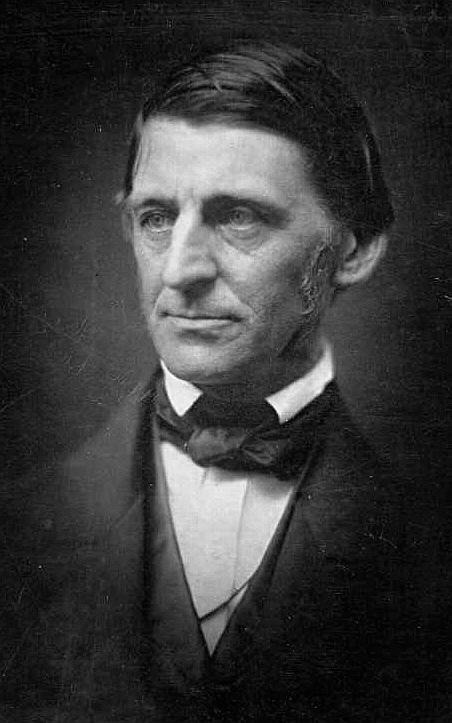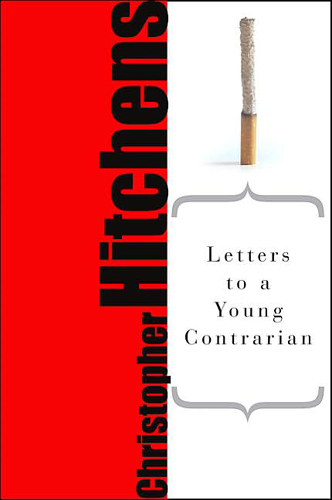in which I read Emerson so you don't have to
I know very little about Ralph Waldo Emerson, but he keeps popping up in the strangest of places and tickling my curiosity, so I'm going to try this spring to get through two central works by him, the shorter Self-Reliance (which I've read before, but have forgotten most of) and the book-length essay Nature.
As a coincidence, just as I was about to start looking for good e-texts to read, someone gave me an old, well-read but beautiful copy of Emerson's Essays, so I got started today. For a warm-up I read a shortish essay called – Emerson is not one for modest, unambitious titles – History.
First impressions:
1. Emerson can write a sentence. You immediately understand that he's a powerful writer of prose. I'm not convinced yet about his ability to write paragraphs. Also not convinced of his ability to write texts. But check out the sentences. Ooooh:
There is one mind common to all individual men. Every man is an inlet to the same and to all of the same. He that is once admitted to the right of reason is made a freeman of the whole estate. What Plato has thought, he may think; what a saint has felt, he may feel; what at any time has be-fallen any man, he can understand. Who hath access to this universal mind is a party to all that is or can be done, for this is the only and sovereign agent.2. This essay is filled to the brim with the sort of Neo-Platonist idealism and romantic genius-thinking which makes me break out in hives.
The beautiful fables of the Greeks, being proper creations of the imagination and not of the fancy, are universal verities. What a range of meanings and what perpetual pertinence has the story of Prometheus! Beside its primary value as the first chapter of the history of Europe ...The word "nature" appears 37 times in the essay. "Heart" 5 times, "truth" 5 times, "genius" 10 times, "soul" 17 times, "know-" 21 times ... Thinking and reading history are ways of working one's way to the innermost heart of the essence of the nature of our souls of the deepest truth of the centre of our utmost beingness of being-ish. This bit I stall at.
3. There's some shades of Thomas Carlyle and his Great Man Theory of History, apparently an influence on Emerson (I think I read somewhere that they met once or something). But Emerson seems to democratize the forces of history a little more.
4. I gather that he thinks of history primarily as a means of engaging with the present, not as something of value in itself. It is a tool for private education, not for public-, and maybe not even for collective understanding.
The world exists for the education of each man. [Anthropocentrism! ed.] There is no age or state of society or mode of action in history, to which there is not somewhat corresponding in his life. Every thing tends in a wonderful manner to abbreviate itself and yield its own virtue to him. He should see that he can live all history in his own person. He must sit solidly at home, and not suffer himself to be bullied by kings or empires, but know that he is greater than all the geography and all the government of the world; he must transfer the point of view from which history is commonly read, from Rome and Athens and London to himself, and not deny his conviction that he is the court, and if England or Egypt have any thing to say to him, he will try the case; if not, let them for ever be silent ...
[All italics mine]
5. I believe that he reads history more the way most people today read novels or biographies. Tools for self-creation or personal insight.
He must attain and maintain that lofty sight where facts yield their secret sense, and poetry and annals are alike.
We are always coming up with the emphatic facts of history in our private experience, and verifying them here. All history becomes subjective; in other words, there is properly no history; only biography. Every mind must know the whole lesson for itself, — must go over the whole ground. What it does not see, what it does not live, it will not know. What the former age has epitomized into a formula or rule for manipular convenience, it will lose all the good of verifying for itself, by means of the wall of that rule. Somewhere, sometime, it will demand and find compensation for that loss by doing the work itself. Ferguson discovered many things in astronomy which had long been known. The better for him.
6. He insists that history is something which must be understood viscerally, empathically, and which everyone has a part in understanding and moving.
History must be this or it is nothing. Every law which the state enacts indicates a fact in human nature; that is all. We must in ourselves see the necessary reason of every fact, — see how it could and must be. So stand before every public and private work; before an oration of Burke, before a victory of Napoleon, before a martyrdom of Sir Thomas More, of Sidney, of Marmaduke Robinson, before a French Reign of Terror, and a Salem hanging of witches, before a fanatic Revival, and the Animal Magnetism in Paris, or in Providence. We assume that we under like influence should be alike affected, and should achieve the like; and we aim to master intellectually the steps, and reach the same height or the same degradation, that our fellow, our proxy, has done.
7. Although the historical zeitgeistyness which Emerson is grasping for sounds pretty outdated and unrealistic, I do enjoy his little blasts of historical force which creep in here and there. It's the combination of his German idealism and his Platonic ideals which interact in unexpected ways, and they undermine, just a little bit, his self-reliant self. Which is probably for the best.
Man is explicable by nothing less than all his history. Without hurry, without rest, the human spirit goes forth from the beginning to embody every faculty, every thought, every emotion, which belongs to it in appropriate events. But the thought is always prior to the fact; all the facts of history preexist in the mind as laws.And then again, near the end:
A man is a bundle of relations, a knot of roots, whose flower and fruitage is the world. His faculties refer to natures out of him, and predict the world he is to inhabit, as the fins of the fish foreshow that water exists, or the wings of an eagle in the egg presuppose air. He cannot live without a world. Put Napoleon in an island prison, let his faculties find no men to act on, no Alps to climb, no stake to play for, and he would beat the air and appear stupid. Transport him to large countries, dense population, complex interests, and antagonist power, and you shall see that the man Napoleon, bounded, that is, by such a profile and outline, is not the virtual Napoleon.The idea that nature seems to foreshadow all of culture is also something which keeps cropping up. Reminds me of Emerson's friend Thoreau, who is next on my list.





